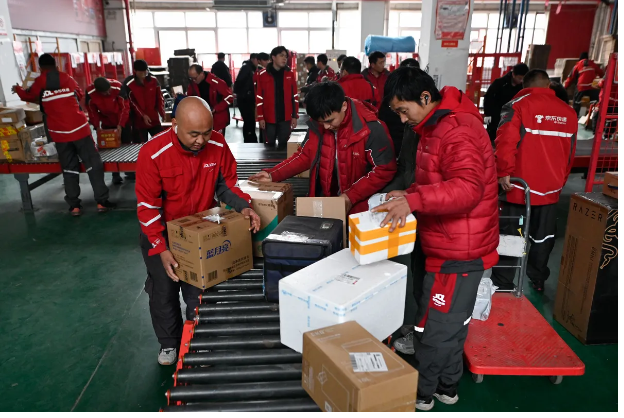
China’s biggest ecommerce platforms issued a welter of numbers showing robust growth during the country’s biggest online shopping event of the year, belying concerns about consumer malaise dogging the world’s No. 2 economy.
Alibaba Group Holding Ltd., JD.com Inc. and gadget maker Xiaomi Corp. on Tuesday announced myriad numbers they say make this year’s Nov. 11 Singles’ Day one of the most productive yet. Alibaba said the number of its paid 88VIP members who placed orders grew by 50% over the previous year, JD reported its customers increased by more than 20%, and Xiaomi co-founder Lei Jun said its total sales over the promotional period set a record at 31.9 billion yuan ($4.4 billion).
Collectively, the industry leaders seemed to paint a picture of recovering consumer confidence just days after Beijing unveiled a $1.4 trillion stimulus to resuscitate spending after near-zero inflation has persisted for months. But analysts warn that it’s too soon to call a rebound, and some of the spending may have been artificially inflated by the extended, monthlong promotion period.
Singles’ Day, once a very significant event where brands sold about a third of annual sales, is losing significance as discounts have become common year-round, leading to discount fatigue among consumers, said Sharon Gai, former head of global key accounts for Alibaba and author of Ecommerce Reimagined. While some segments, like travel, are showing signs of recovery, overall spending remains moderated, reflecting a long-term shift toward more mindful consumption.
Neither of China’s two biggest ecommerce players disclosed gross merchandise value for the Singles’ Day period, opting instead to emphasize the number of merchants and brands with increased transactions. Alibaba highlighted its artificial intelligence enhancements helping merchants reduce marketing costs. JD said sales of AI-enhanced electronics jumped, with AI smart glasses orders tripling and AI learning machines marking a tenfold increase.
On China’s Instagram-like social app Xiaohongshu, many users encouraged people to pick goods from international brands such as Ralph Lauren Corp., Burberry Group Plc or Valentino Fashion Group SpA to level up their spending. For example, a 7,000 yuan ($970) spend would have entitled shoppers to a 560 yuan discount on goods bought on Tmall.
The trend, which makes quantifying the actual rate of consumer spending in the country more challenging, is reminiscent of what luxury labels including Cie Financiere Richemont SA’s Net-A-Porter experienced a year earlier. Even in the first quarter of this year, the rate of goods returned surged abnormally, potentially masking the underlying trend and consumer inclinations.


